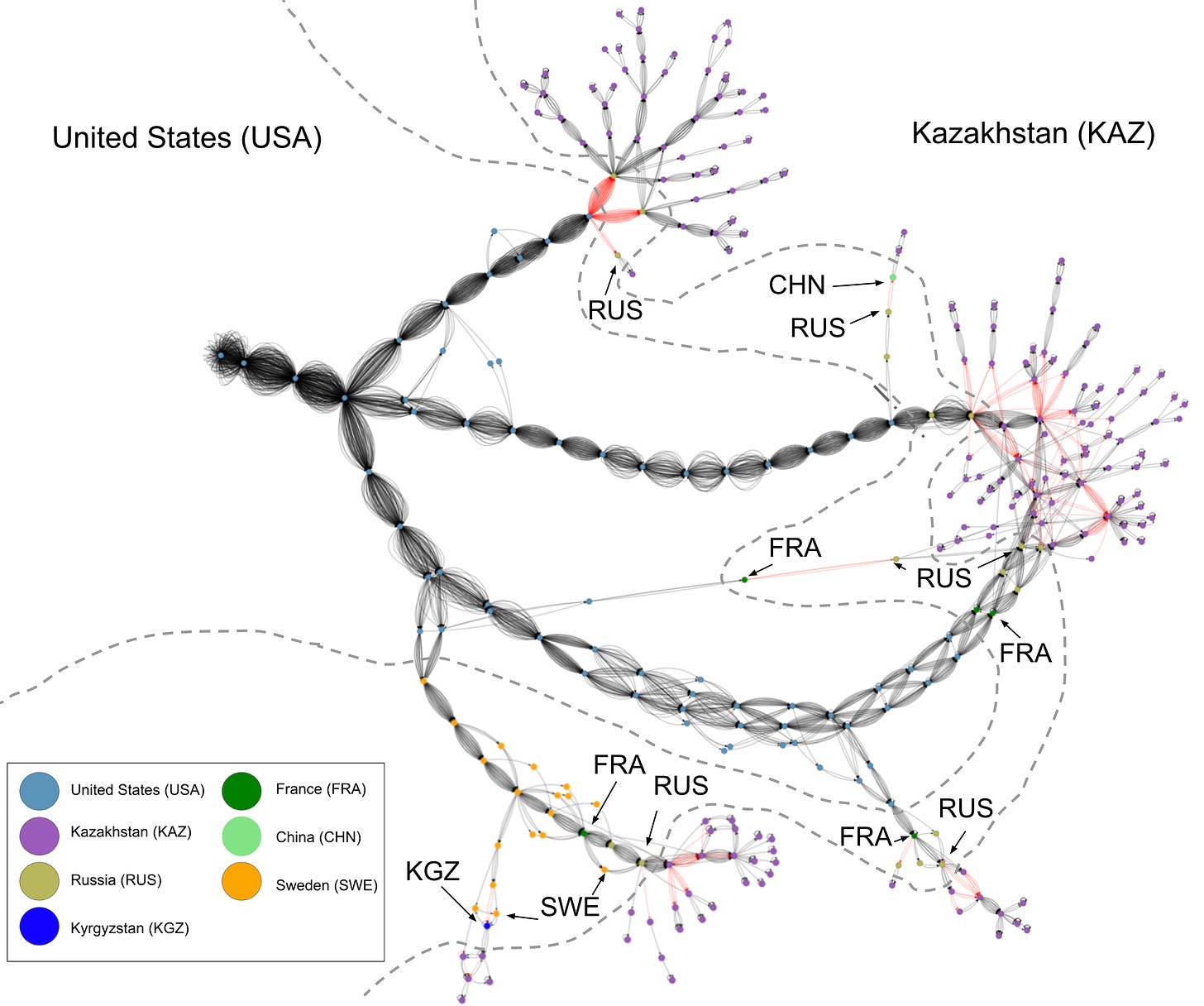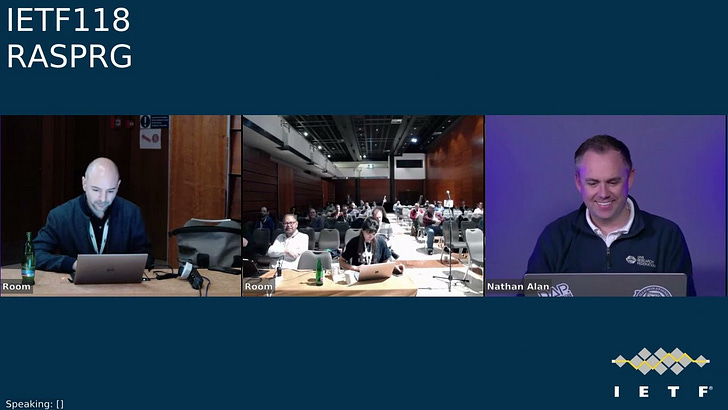IETF 118 - CDNs and States
Content distribution networks (CDNs) handle most internet traffic. These CDNs are brokers, standing between users and the content they request. How do states view CDNs, and vice versa? Given their importance, you’d think we’d know. Yet this question is curiously understudied.
I spoke at IETF 118 on this topic. My talk starts at 1:16:59.
Slides here [PDF].
Other notes from IETF 118 on the internet & geopolitics…
Censorship devices: U.S. corporations vending to U.S. adversaries?
Commercial vendors like Cisco and Fortinet likely produce many devices countries like Russia, Azerbaijan, and Belarus use to censor the internet (Raman et al., 2022). This raises a question similar to mine: how do corporations’ interests align, or fail to align, with those of states? How do states cooperate and compete to produce geopolitical effects on/via the internet?
Raman et al.’s paper is full of other interesting observations. For example, blocking can be transnational: Russia can block traffic to and from Kazakhstan. This relationship falls along old colonial lines, again proving out Douzet’s (2014) thesis: the internet is both the cause and effect of geopolitical relations.

Taiwan
And an update on some prior work: I wrote previously about Taiwan & the internet during world war. Some new research from CAIDA (U.C. San Diego) comes bearing good news: Taiwan’s reliance on Chinese ISPs has decreased dramatically since Russia invaded Ukraine (see Section 6.2). This undoubtedly results from conscientious work throughout Taiwanese government and civil society. See: Huffaker et al. (2023).
Duke Law Journal Online
My piece with Tejas Narechania, Inside the Internet, was finally published in Duke Law Journal Online. Check it out!



